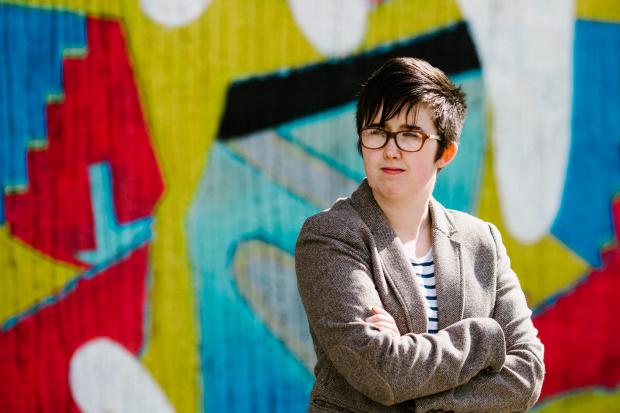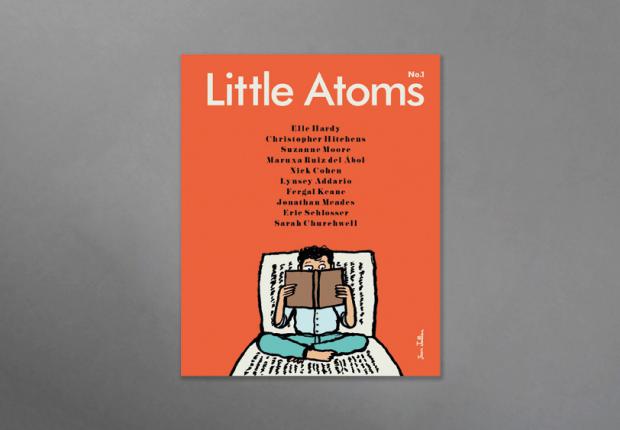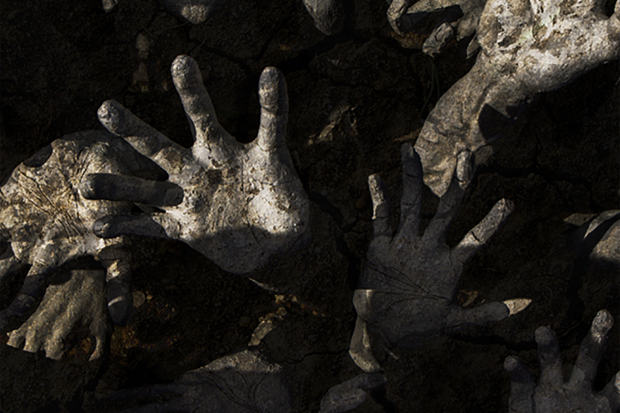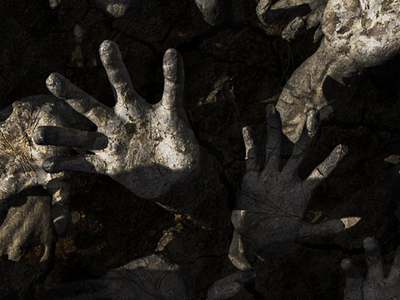This is not normal
Editor’s note: Gaby Charing died peacefully on 24 May, 2020. She was a committed reader and patron of Little Atoms and we mourn her passing.
I already have my death booked. After living for seven years with bowel cancer, I’m no longer having treatment. An end-of-life care package is a phone call away. I’m just stopped at the lights.
Death doesn’t frighten me. I’m past all that.
You, by contrast, weren’t expecting this. Anyone can be cut down in their prime, but that isn’t what’s happening here. You’re all, understandably, scared out of your wits; afraid that, in spite of being, maybe, in rude health, you will catch the virus and die. This is not normal.
The last time the population of the United Kingdom felt so terrified was during World War 2. I agree with those who say WW2 is the best analogy. But distinctions are already being drawn: “WW2 brought people together; this is driving us apart.” Don’t go so fast. Was the Blitz Spirit really so wonderful? Is the separation now really so bad? Time, and human ingenuity, will tell.
***
I first realised things were not normal when the government started briefing the press. Briefing occurs when a journalist is taken aside and offered information they can present to their readers as some kind of exclusive story. Over a couple of days, these briefings concerned arrangements for quarantining the over 70s, an issue that concerned me personally. It seemed we were to be taken to care homes.
The story was ridiculous. I needed only to look at emails from a former work colleague, deriding the whole idea. She isn’t someone you would easily herd.
But I felt vulnerable. I conceived the idea that there might be an attempt to drag me from my death bed to a home. They were going to try and take over my death. I wasn’t going to let them.
I began to think about what I might do if it happened. I wouldn’t readily thump someone who would probably turn out to be an Uber driver. I started to think that in those circumstances I might take my own life.
I cannot tell you how ridiculous this was. In seven years of illness, it has never once occurred to me I might do such a thing. Not until my government started presenting me with absurd scenarios, leaked out to favoured journalists.
I’m so angry about this that I can’t put my feelings into words.
And no, it is not normal.
***
Normal people in abnormal situations.
***
Since this thing kicked off, I’ve had something going through my head like a video loop. Many people know that during World War 2, the Special Operations Executive recruited British people who could pass as French to operate in France behind enemy lines. These were ordinary people from all walks of life who just happened to have fluent French. It was desperately dangerous work, and some of them ended up in Buchenwald.
I watched an interview with one, who’d come to London after the War. He and a friend encountered a funeral procession. They looked at each other and said, “Only one body?”. That is not normal.
***
In her book Natural Goodness, Philippa Foot, who was my philosophy tutor at Oxford, wrote about the young Germans who refused to serve in the Wehrmacht during WW2. Their “choice” was to serve or be executed. She was making an argument about the irrelevance of maximising human happiness as an aim in such a situation. My point is simply that to put young people on the cusp of adulthood into that position is not normal.
***
Two anecdotes from my family.
June 1940: the fall of France. My mother and her British family were living on the Atlantic coast, in Arcachon. Her brother and a friend appeared, rushed them from the beach to the car, drove as fast as they could to Bordeaux, and managed to get them all on a boat headed for England. They were five days at sea, in constant fear of being torpedoed, and going as far as the Azores to avoid air attack. When finally they landed at Falmouth, and were brought Cornish pasties and mugs of tea by the WRVS, my mother said it was the best meal of her life.
That is not normal.
***
A few months earlier, my uncle had been part of the Autumn 1939 intake to officer training at Sandhurst. They were told their first task would be to deal with the horses. I don’t know what horses these were – they may have been ridden for ceremonial purposes – but it was recognised that in what was to come, they wouldn’t be much use; so the order was given to shoot them and bury them in pits. The young cadets were present when that order was carried out.
Eighteen-year-old boys obliged to witness that. It is not normal.
***
Do we still encourage children to read that terrifying novel, Lord of the Flies, by William Golding? It concerns some English choirboys thrown together on an island in the Pacific after being shot down during World War 2. Power struggles erupt immediately, and it does not end well: they descend into complete barbarism. Having read that book, a child with any sensitivity will spend the next three months cowering under the bedclothes. The state of affairs it describes is not normal.
***
We know that sustained pressure can cause normal people to behave abnormally. The Nazi camps provide examples of the most exalted and the most depraved behaviour. Some of the things that were done by prisoners to other prisoners defy belief.
You must not allow that to happen here, because that is not who you – we – are.
But it isn’t who those people were, either. Honestly, truly, it is not. So I think you may have a serious problem on your hands.
***
I can’t offer you any advice. I can’t focus on any of this. I can feel myself gradually withdrawing from the world, cognitively and emotionally.
I am terrified for my beloved partner, Liz, and for the other people I love and care about. I’m just as frightened as you are.
But I can’t engage with the wider issues, such as people’s irresponsible behaviour, or government policy on the virus. You deal with it. I’ve done my bit of living. I’m off.
I have no religious faith and I don’t believe in an afterlife. I believe that when I’m gone, I’m gone.
If it turns out I’m wrong, I’ll make sure I’ve got the kettle on when you arrive.





